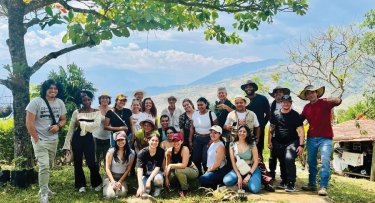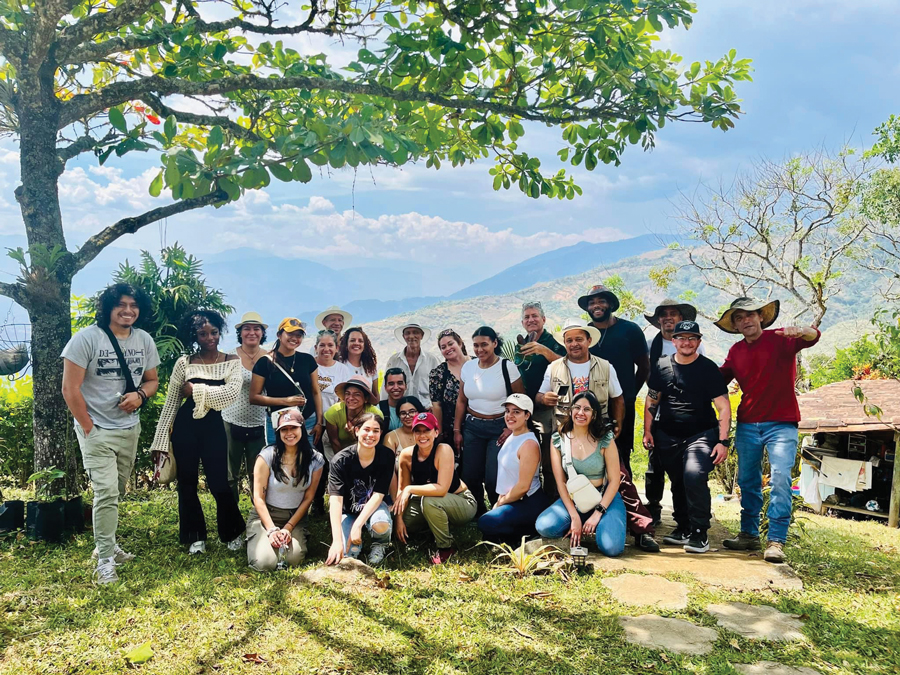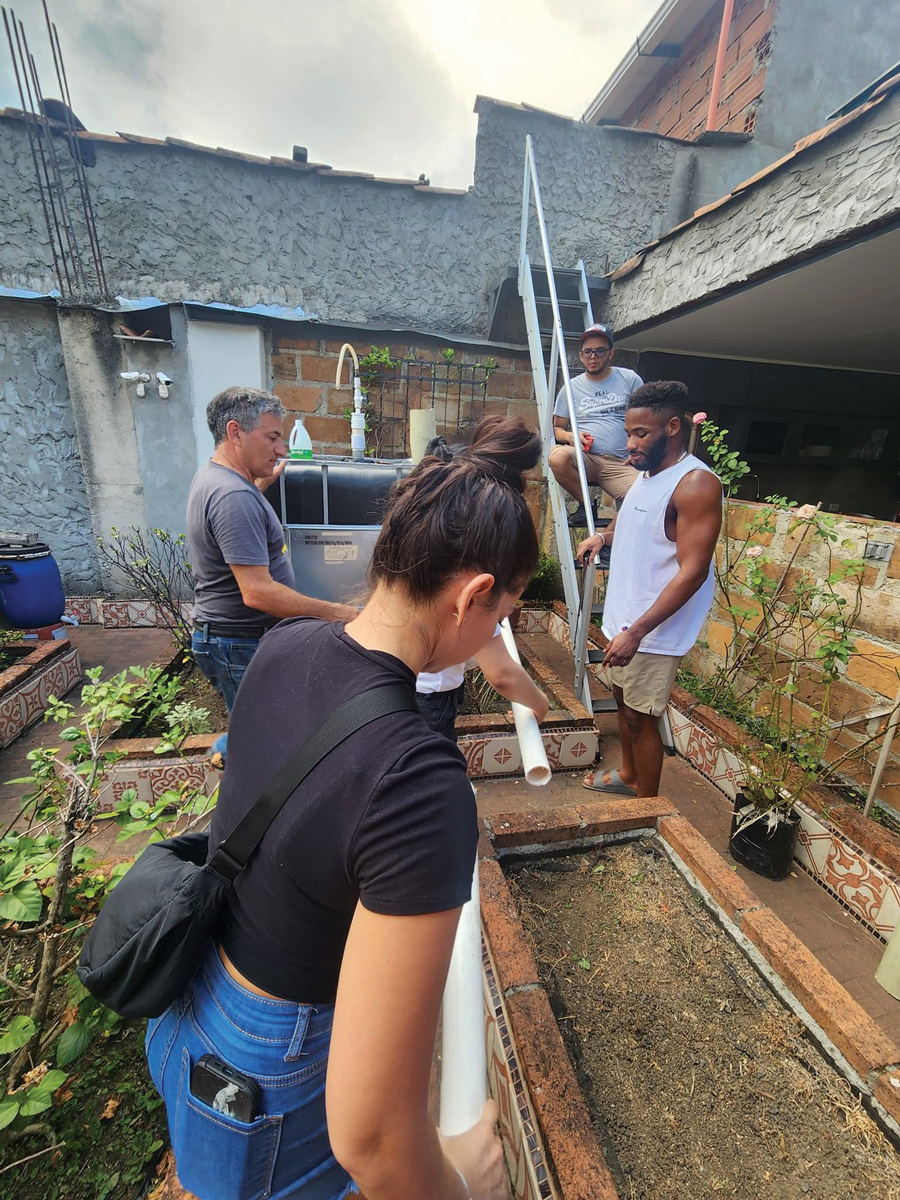Building a Greener, Cleaner World
- News & Events
- News
- Building a Greener, Cleaner World


Building a Greener, Cleaner World
Mercy students keep a promise to the people of Colombia.

In the city of Medellín, Colombia, a project carried out by Mercy students is helping support global sustainability. During spring break this year, a group of students and faculty advisors traveled to South America to help build and install the region’s first restaurant biodigester, which converts organic waste into fuel and fertilizer.
The trip was the latest of several international travel projects headed by Stuart Sidle, Ph.D., dean of the School of Social and Behavioral Sciences. He was joined by senior lecturer T.H. Culhane, Ph.D., who led the students in designing, building and installing the biodigester.
 “The skills students learn from traveling to do service abroad are highly relevant to the multicultural workforce of the
“The skills students learn from traveling to do service abroad are highly relevant to the multicultural workforce of the
future,” Sidle said. “Not only are these skills adaptable to many careers, but they also help to build trust across cultures.”
Medellín, Colombia’s second-largest city, has been designated as a Special District of Science, Technology and Innovation by the Colombian government. Since 2013, the city has been garnering awards for its advances in politics, education and social development. Leaders have set a goal for Medellín, once associated with high crime and drug trafficking, to become a model for sustainability and social equality in South America and worldwide.
So what does this have to do with a contraption that eats waste and turns it into fertilizer and fuel?
The impetus for this year’s trip began on a 2023 learning trip to Medellín. Students observed a group of women sorting trash from recycling materials, which led to a plan to assist the community’s sustainability efforts. The project focused on a Medellín farm-to-table restaurant owner seeking to expand his operation’s sustainability practices. In March, 12 Mercy students, along with Sidle and Culhane, completed their task. Today, the region’s first biodigester recycles food waste and turns it into cooking fuel for the restaurant’s kitchen and fertilizer for the restaurant’s gardens.
The trip to South America was a first for Kasandra Hernandez ’24, a psychology major in Mercy’s dual-degree childhood education program. She recalled a dynamic conversation with an organic farmer. “He kept reminding us that it’s not just humans ingesting pesticides and chemicals — it’s also the bees and butterflies, it’s all of life,” she said. “It got me thinking about how I can contribute to society, because we can never stop learning what we can do for the world.”
Behavioral Sciences major Lenny Velasquez ’25 was inspired by the passion and dedication of the local residents. “It was incredible to see how the people of Medellín are making a real difference in promoting sustainability and social change within their community,” she said. “The trip has shown me that change is possible, even in challenging circumstances, and has motivated me to seek out opportunities where I can make a positive impact on society by pursuing a career that aligns with values that create a better future for all.”
The recent trips to Medellín have led to important connections for students that may lead to other opportunities in the clean energy field. “Clean energy is a growth industry that also provides a rewarding sense of mission and purpose.” Culhane said. “With this project, our students proved themselves to several influential connections.”
Sidle added, “We’ve been in contact with two companies involved in the international green energy space, and they are very interested in our students after seeing them in action.”
Plans for next year are already taking shape with an idea that emerged when students visited a cacao plantation. After brainstorming with the plantation owners, the students suggested an idea for overcoming logistical challenges by using ziplines to transport materials over rough, mountainous terrain. Culhane said he and the students have already begun developing the concept, using 3D modeling programs and AI to understand the physics and engineering principles. “We’ve assembled a prototype zipline and successfully demonstrated the concept, which we’re now adapting to a full-scale application,” he said.
“I’m proud of the way our students approach problems,” Sidle said. “They embraced the project like it was their own. They were willing to devote time and careful thought to working out a solution.”
